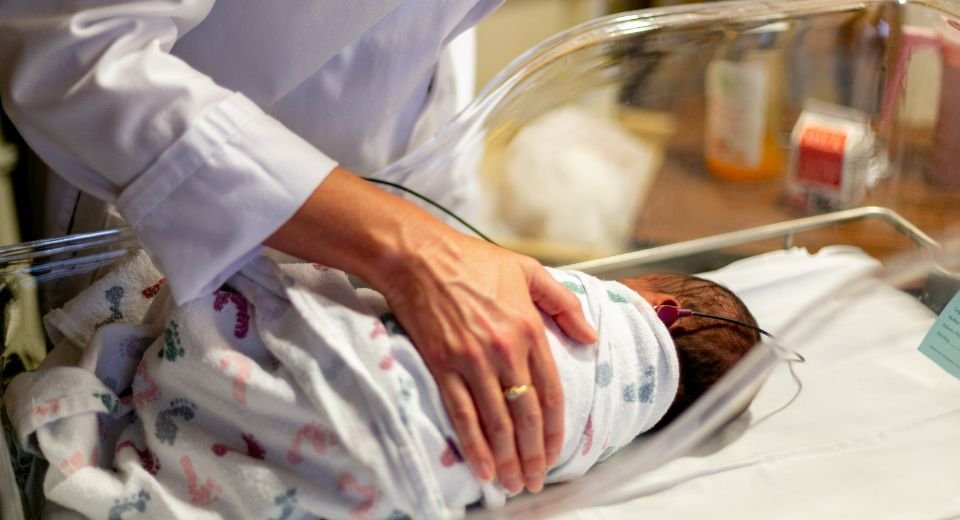HQ Team
May 9, 2023: Every seven seconds a baby or a woman has died during childbirth, with no progress been made in the last eight years to provide healthcare facilities due to lack of funds, the WHO stated.
“Pregnant women and newborns continue to die at unacceptably high rates worldwide,” said Dr Anshu Banerjee, Director of Maternal, Newborn, Child and Adolescent Health and Ageing at the World Health Organization.
The COVID-19 pandemic, which has claimed the lives of about seven million people, has created further setbacks “to providing them with the healthcare they need,” he said.
The report, Improving Maternal and Newborn Health and Survival and Reducing Stillbirth, assessed the latest data on these deaths — which have similar risk factors and causes — and tracked the provision of critical health services.
More than 4.5 million women and babies die every year during pregnancy, childbirth, or the first weeks after birth — equivalent to 1 death happening every 7 seconds — mostly from preventable or treatable causes if proper care was available.
‘Smarter investments’
“If we wish to see different results, we must do things differently. More and smarter investments in primary healthcare are needed now so that every woman and baby — no matter where they live — has the best chance of health and survival,” Mr Anshu said.
Progress in improving survival has stagnated since 2015, with around 290 000 maternal deaths each year, 1.9 million stillbirths — babies who die after 28 weeks of pregnancy — and a staggering 2.3 million newborn deaths, which are deaths in the first month.
Since 2018, more than three-quarters of all conflict-affected and Sub-Saharan African countries reported declining funding for maternal and newborn health.
One in 10 countries (of more than 100 surveyed) reported having sufficient funds to implement their current plans.
Pandemic’s impact
According to the latest WHO survey on the pandemic’s impacts on essential health services, around a quarter of the countries still report ongoing disruptions to vital pregnancy and postnatal care and services for sick children.
The COVID-19 pandemic, rising poverty, and worsening humanitarian crises have intensified pressure on stretched health systems, according to the e-mailed report.
“As is too often the case, vulnerability, fear, and loss are not spread equally around the world,” said Steven Lauwerier, UNICEF Director of Health.
“Since the COVID-19 pandemic, babies, children, and women who were already exposed to threats to their well-being, especially those living in fragile countries and emergencies, are facing the heaviest consequences of decreased spending and efforts on providing quality and accessible healthcare.”
Funding shortfalls and underinvestment in primary healthcare can devastate survival prospects, the report stated.
While prematurity is now the leading cause of all under-five deaths globally, less than a third of countries were having sufficient newborn care units to treat small and sick babies.
Sub-Saharan Africa
About two-thirds of emergency childbirth facilities in sub-Saharan Africa is not considered fully functional — meaning they lack essential resources like medicines and supplies, water, electricity, or staffing for 24-hour care.
In the worst-affected countries in Sub-Saharan Africa and Central and Southern Asia — the regions with a greater burden of newborn and maternal deaths — fewer than 60% of women receive even four, of WHO’s recommended eight, antenatal checks.
“The death of any woman or young girl during pregnancy or childbirth is a serious violation of their human rights,” said Dr Julitta Onabanjo, Director of the Technical Division of the United Nations Population Fund.
“It also reflects the urgent need to scale up access to quality sexual and reproductive health services as part of universal health coverage and primary health care, especially in communities where maternal mortality rates have stagnated or even risen during recent years.”
The governments and health bodies must take a human rights and gender transformative approach to address maternal and newborn mortality, and it is vital that “we stamp out the underlying factors which give rise to poor maternal health outcomes like socio-economic inequalities, discrimination, poverty, and injustice.”
Harmful gender norms
Women and babies must have quality, affordable healthcare before, during, and after childbirth, as well as access to family planning services to increase survival rates.
More skilled and motivated health workers, especially midwives, are needed, alongside essential medicines and supplies, safe water, and reliable electricity.
Improving maternal and newborn health further requires addressing harmful gender norms, biases, and inequalities. Recent data show that only about 60% of women aged 15-49 years make their own decisions about sexual and reproductive health and rights.
Based on current trends, more than 60 countries are not set to meet the maternal, newborn, and stillborn mortality reduction targets in the UN Sustainable Development Goals by 2030.








